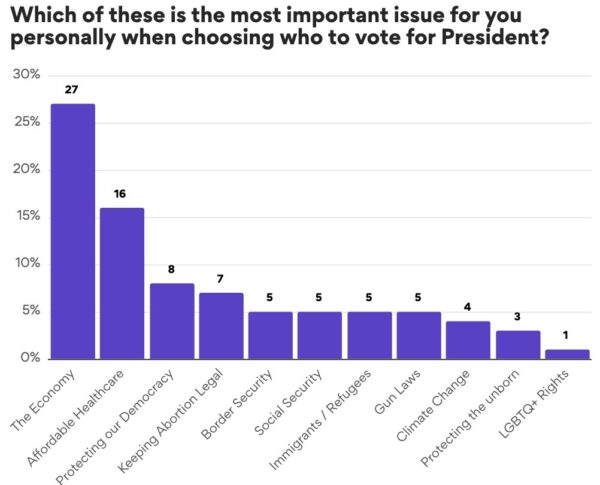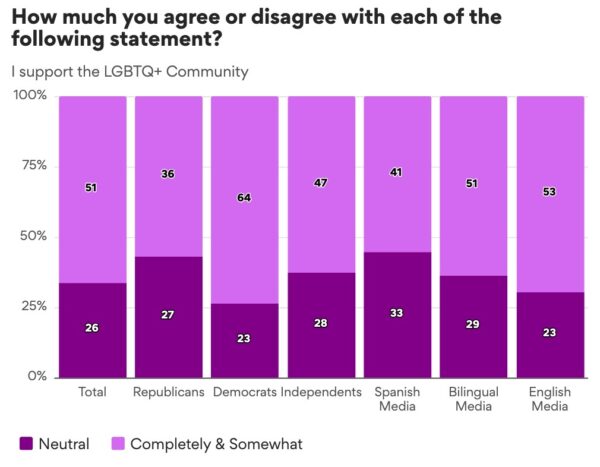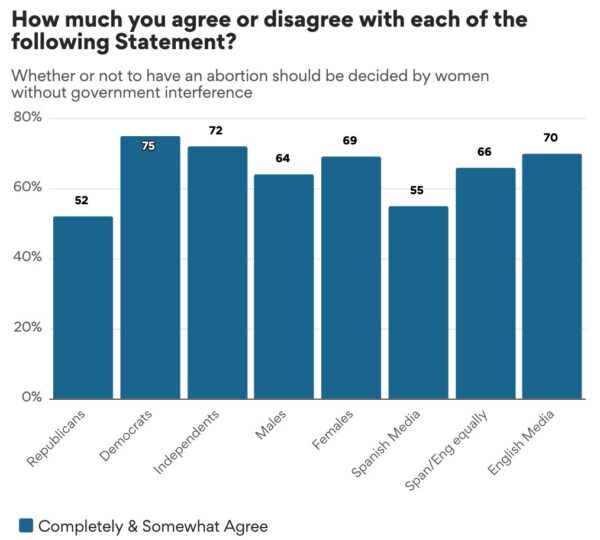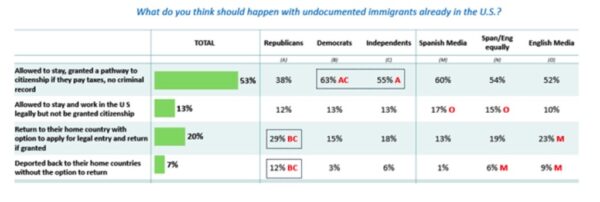Leveraging Consumer Insights to Engage with Latino Voters
February 4, 2025

By Roy Eduardo Kokoyachuk
The results of the 2024 U.S. presidential election sent shockwaves around the globe. While the performance of the U.S. economy and inflation rate of 2.7% around the time of the election were envy of the world, many Americans were still hurting from the rapid rise in prices immediately following the pandemic. The economy, therefore, was the number one issue voters cared about in 2024, and they voted for change.
The Economy a Key Concern for Latino Voters
Among the groups that prioritized the economy over any other issue were Latinos. The majority of Latinos followed past trends and voted for Democrats, but more of them shifted their allegiance to Republicans this year than ever before. To help understand this shift, we had another look at ThinkNow’s July 2024 Latino Voter research which revealed significant nuances within the Latino population that could guide Democratic strategists as they regroup after a stinging loss.

Understanding Latino Attitudes Toward Social Issues
While views on the economy clearly drove people to the polls, the new administration is changing more than economic policy. Social issues are currently driving agenda. Among them are curbing reproductive and transgender rights, mass deportations and eliminating diversity and inclusion initiatives. However, how Latino voters felt about these issues was not as cut-and-dry as pocketbook issues.
LGBTQ+ Community
Latinos tend to be more religious than other groups, which might lead to the assumption that they are more likely to support restrictions on reproductive rights and show less support for the LGBTQ+ community. But that does not appear to be the case. Despite the impression that Latinos are socially conservative, our research shows support for the LGBTQ+ community is as high or higher among Latinos than other groups.

Reproductive Rights
A majority of Latinos, even those who identify as Republicans, believe whether or not to have an abortion should be decided by women without government interference. Support for reproductive rights is also higher among Latinos who consume English language media.

Transgender Rights
While the economy was the issue that drove most voters, public sentiment on transgender rights may have played a role in the outcome of the 2024 election. Over half of voters (55%) felt that governmental and societal support for transgender rights had gone too far (AP VoteCast).
When focusing on support for transgender individuals using bathrooms aligning with their gender identity, support dipped to 42% of Latino voters. These findings suggest that while Latino communities are generally supportive of LGBTQ+ rights, the data alludes to conservative leanings within sub-populations of this community that went unexplored.
The issue is complicated since a majority of voters opposed laws banning gender-affirming care for minors. The challenge for Democrats was not just advocating for transgender rights but doing so in a way that resonated with culturally diverse electorates, such as Latinos.
Immigration and Deportation Plans
In October, Data for Progress conducted a survey to gauge voter sentiment on various immigration scenarios potentially affected by Trump’s mass deportation plan. The survey tested nine different deportation scenarios. Among them, a majority of voters supported deportation in only two cases: for someone who recently crossed the border illegally (70%) and for someone who crossed the border illegally and has a criminal record for a nonviolent offense (67%).
ThinkNow’s survey found that a majority of Latino voters support a path to citizenship. Only 7% support deportation without an option to return.

Insights for a Pro-Democratic Strategy
The data shows that Democrats could have better engaged Latino voters. Having had strong support from this community in 2020, the drop in voter turnout is telling. Areas for growth include:
- Acknowledging that social issues only come into play once economic needs are met: The economic realities of Latino voters make it difficult for them to vote based on social issues. Improved communication around economic issues will help Democrats connect with these voters.
- Connecting LGBTQ+ advocacy with family values: Frame support for transgender rights as a reflection of deeply rooted values of dignity, fairness, and care—principles central to Latino culture.
- Using bilingual messaging that accounts for generational differences: Craft culturally informed messaging in Spanish and English that highlights shared struggles for equality and acceptance.
- Better Communicating Immigration Stance: Latinos are progressive on immigration, though the issue is often misrepresented. Clear, positive immigration messaging will help Latino voters better match their values to voting behavior.
- Countering fear-based transgender narratives with poignant truths: Given the GOP’s heavy investment in anti-transgender ads, employing relatable, human-centered storytelling to humanize transgender rights, debunk false narratives, and show alignment with core Democratic principles is key.
Moving Forward
In the wake of the 2024 election, it is clear that the Democratic Party faces a pivotal moment to reconnect with Latino voters—a group that has long been a cornerstone of their coalition. While economic concerns dominated the election, social issues significantly shaped voter sentiment and revealed nuanced views within the Latino community. Moving forward, Democrats must adopt a multifaceted strategy that addresses both economic and social priorities. Furthermore, Democrats must understand that despite the accelerating trend toward a multicultural majority in the U.S., it is no longer a given that a black or brown individual will vote blue. There are nuances to be considered, from countries of origin to socio-economic status.
By emphasizing culturally resonant messaging, clarifying their stance on immigration, and aligning advocacy for social rights with deeply held community values, Democrats can rebuild trust and inspire renewed engagement among Latino voters. The road ahead requires thoughtful reflection and bold action, but the opportunity to create a stronger, more inclusive coalition remains within reach.




























